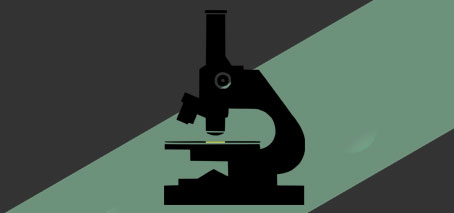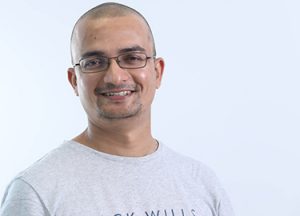This month’s ARC infrastructure funding round saw FLEET researchers across five universities on teams awarded additional funding towards research facilities, including significant new imaging resources in South Australia and NSW.
Pankaj Sharma, initially a FLEET Research Fellow at UNSW and now a Centre AI at Flinders University (South Australia), will help develop new, state-of-the-art atomic force microscopy (AFM) facilities for the state.
“The atomic force microscopy facility aims to transform Australia’s capability in nano-(bio)characterisation,” says Pankaj.
The facility will provide unparalleled capabilities not currently available in Australia and will catapult knowledge in multiple fields, from critical minerals and clean energy to mechanobiology. Expected outcomes include more efficient and eco-friendly resource recovery and energy production, future foods and cures, and advanced (bio)materials. The project will strengthen and amplify Australia’s capacity and global leadership to translate fundamental nano-scale phenomena and properties into innovative materials, technologies, and processes. The project is led by A/Prof Anton Blencowe (University of South Australia) | LIEF funding: $530,721

Jan Seidel (UNSW)
Jan Seidel (UNSW) will lead a newly funded quantum microscopy facility for ultrasensitive nanoscale magnetic imaging.
“Investigations of 2D and vdW materials, biological samples, energy materials, and quantum devices on the nano- and microscale are revolutionising medicine, communications, information technology, energy production and storage by virtue of new phenomena,” says Jan, introducing the new quantum microscopy facility.
The facility will enable state-of-the-art capabilities in mapping chemical, magnetic, optical, electronic, and spectral properties, providing cutting-edge tools that will enable breakthroughs in both existing and future multi -disciplinary projects in photonics, quantum devices, nanomaterials, nanoelectronics, biotechnology, and energy technology as key drivers of the new economy in Australia. The project will see significant involvement from FLEET personnel, including Alex Hamilton (UNSW), Julie Karel (Monash), Torben Daeneke (RMIT) and Yuerui (Larry) Lu (ANU)| LIEF funding $ 1,100,000
Other funding for FLEET personnel’s research projects that instigate or develop enduring strategic research partnerships for Australia included the following:
National Electron Beam Irradiation Facility addressing a gap for Australian researchers and start-ups by establishing a high-energy electron-beam facility, generating new knowledge and manufacturing capacity in the areas of quantum sensing and quantum computing by enriching doped diamond and other wide band gap materials via controlled electron irradiation techniques. Expected outcomes include the creation of new quantum-engineered materials and devices via an academic and industry collaborative effort, providing significant benefits to Australian researchers and quantum start-ups through unrestricted access to a sovereign facility entirely dedicated to their needs, aiding training of the future quantum workforce. Lead: Brant Gibson (RMIT) | FLEET people: Kris Helmerson and Michael Barson (Monash) | funding $ 740,000
Cryogenic microwave characterization facility for quantum technologies establishing a multi -user, fast-turn-around cryogenic characterisation facility for the microwave superconducting quantum technologies that are critical components for quantum computer, networks and sensor systems. This facility will lead to a significant improvement in research efficiency, allowing for rapid optimisation of devices and components prior to integration into a larger quantum system, creating new intellectual property and enhanced engagement with industry, and further boosting Australia’s eff orts to build a commercially scalable quantum computer. Lead: Maja Cassidy (UNSW) | FLEET people: Alex Hamilton (UNSW) and Elizabeth Marcellina (alumni)| funding $ 410,000
The Australian Research Council Linkage Infrastructure, Equipment and Facilities (LIEF) scheme provides funding to eligible organisations for research infrastructure, equipment and facilities. Read the ARC LIEF media release | see the full list of funded projects.


